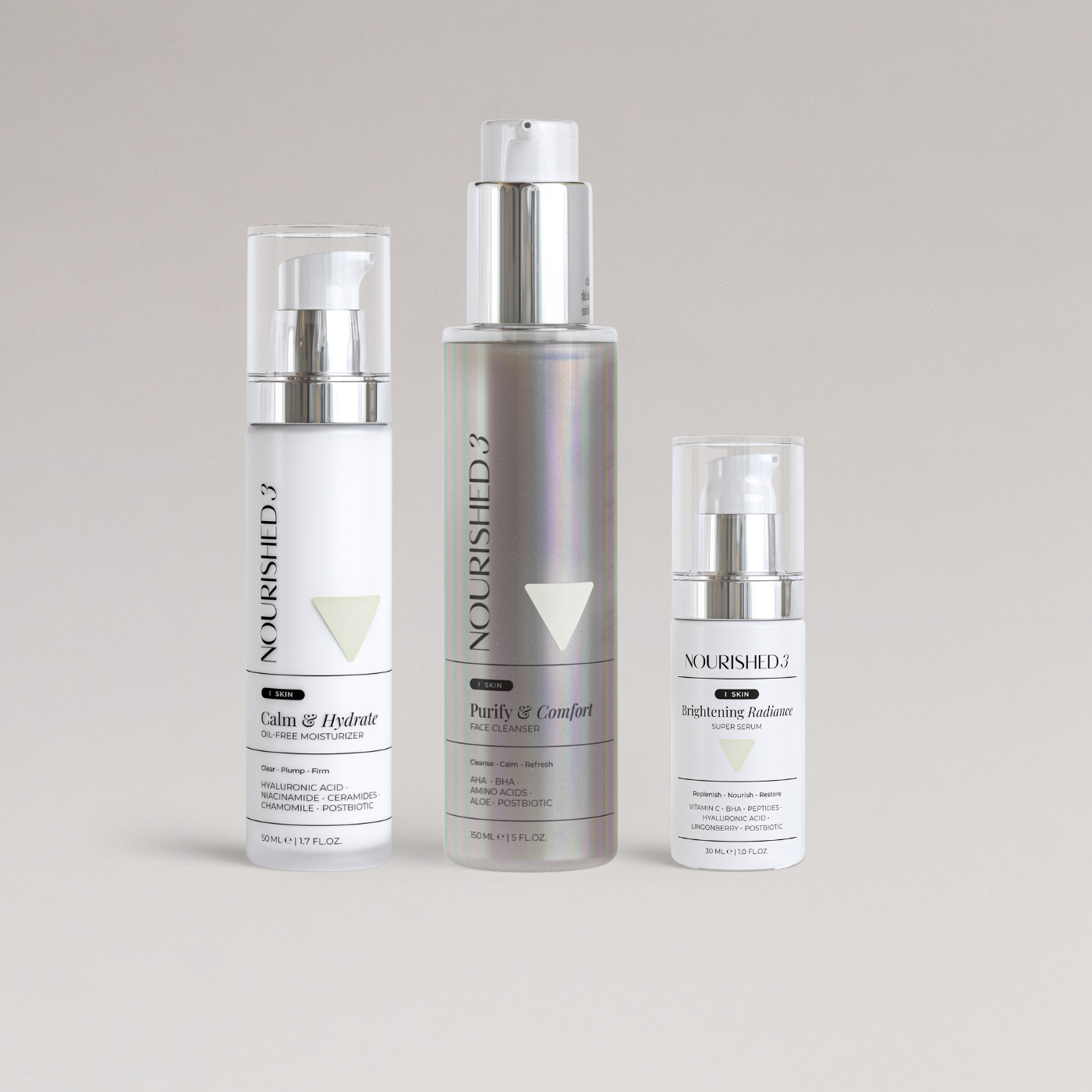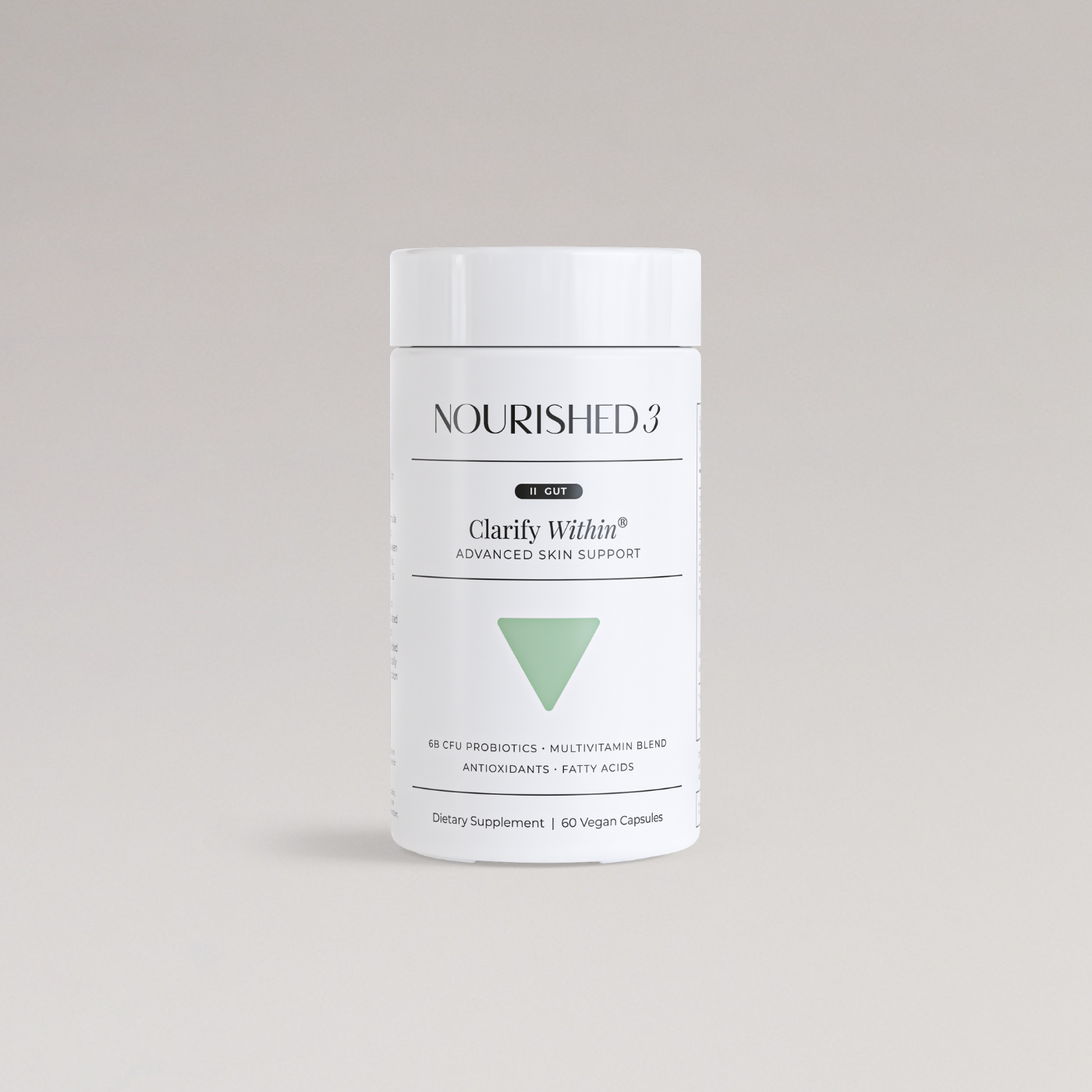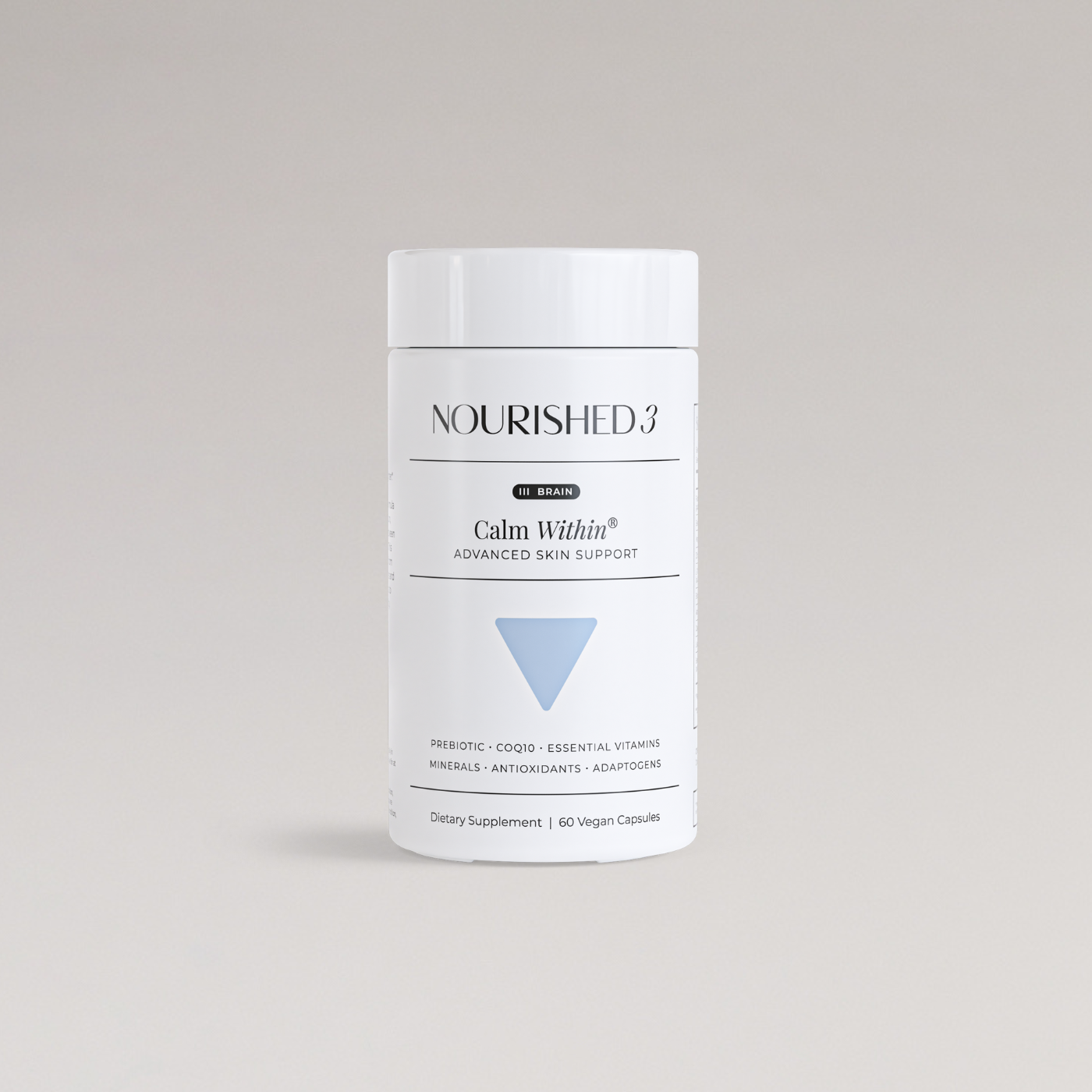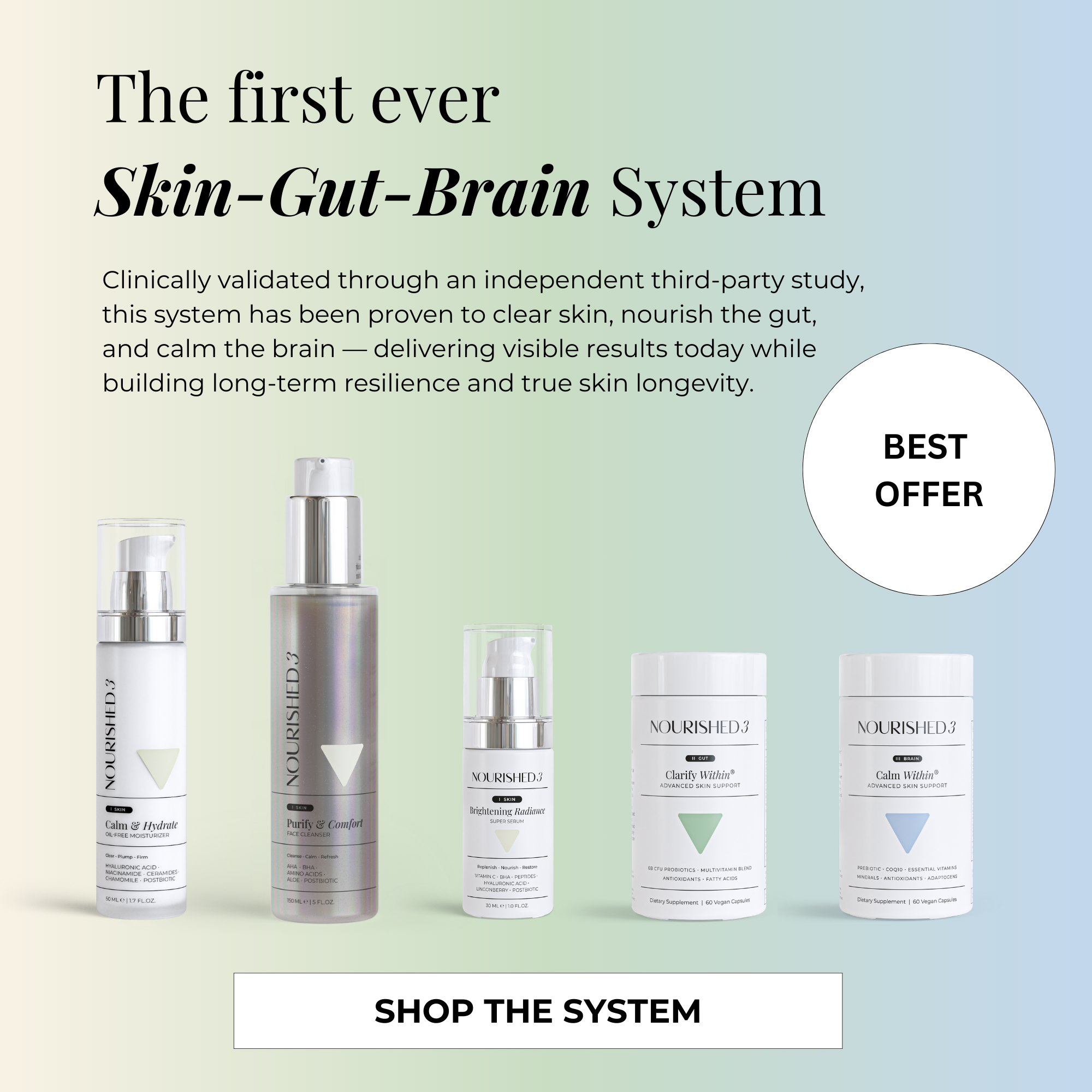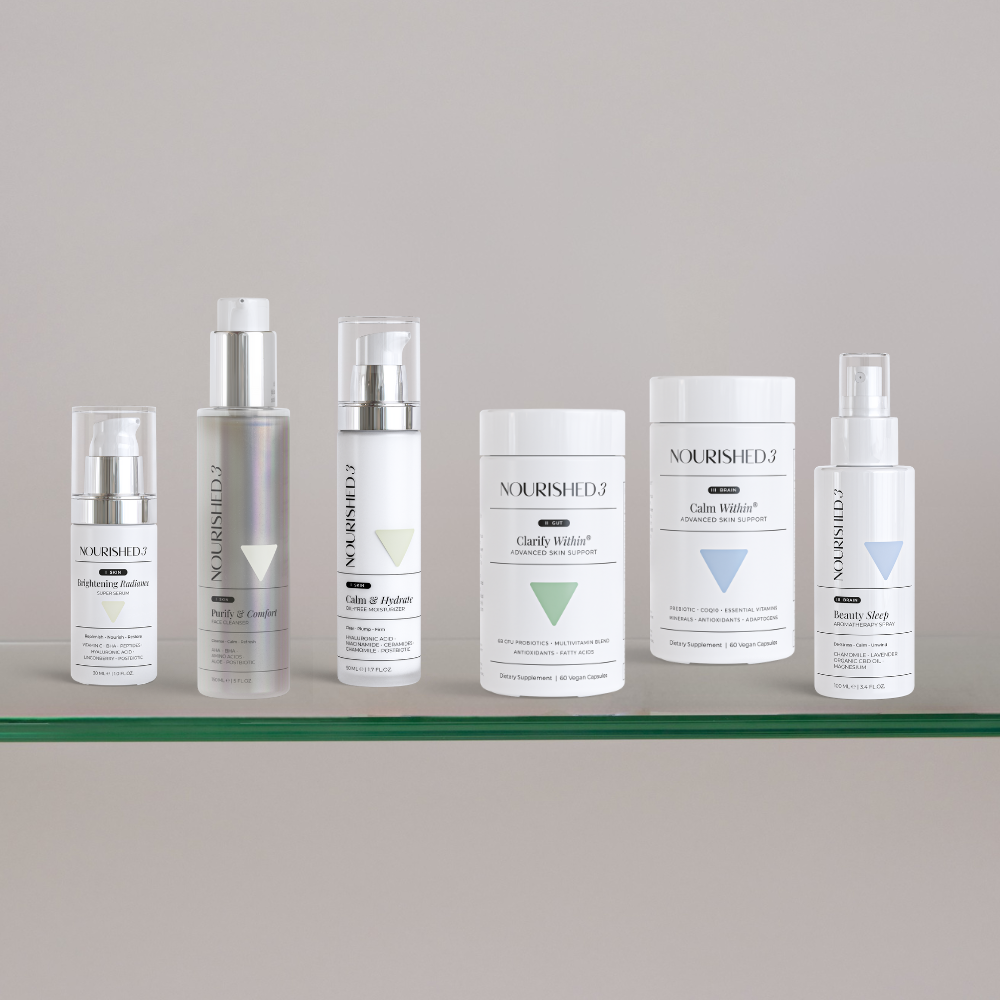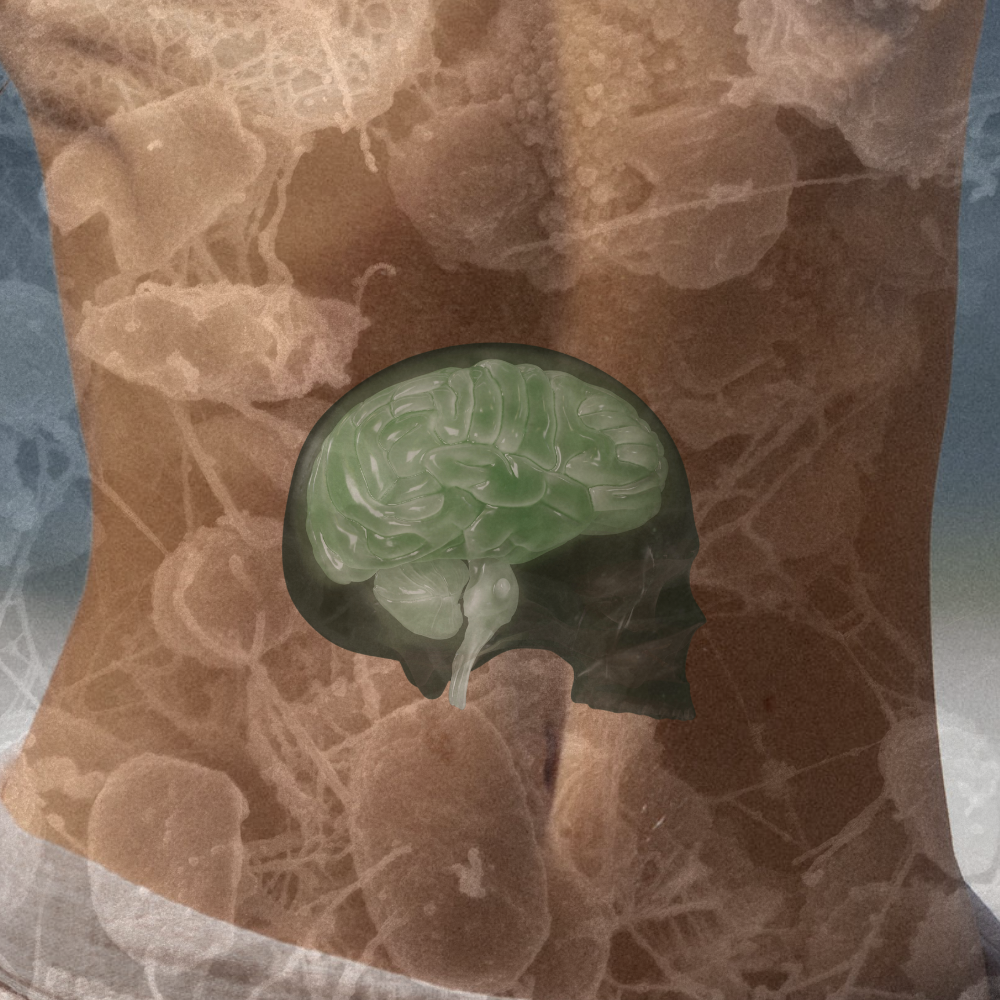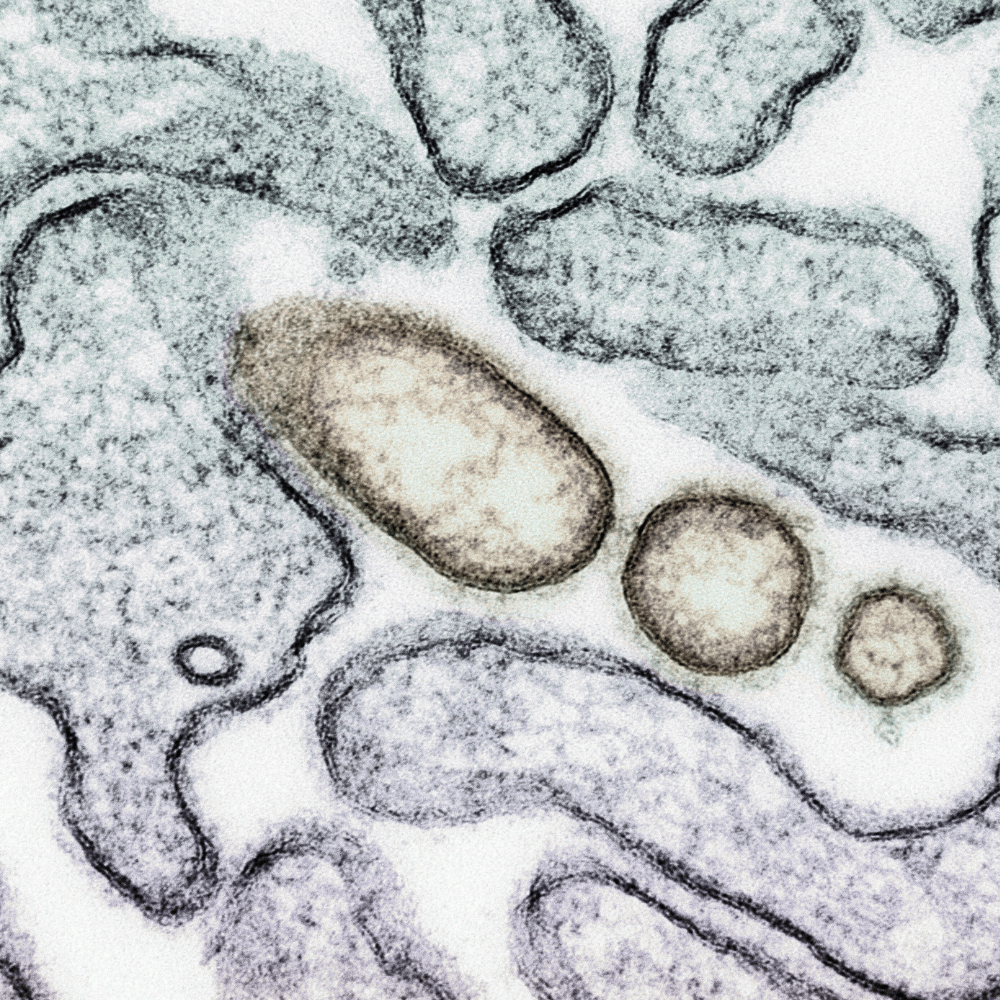We Target over 300+ Biomarkers to support Skin, Gut and Brain Health
5 min read
I. Why biomarkers matter
Biomarkers are measurable signs in your body that tell us what’s going on inside at the cellular, biochemical, or molecular level. Think of them as health signals or checkpoints that can be measured in blood, tissues, or even through imaging.
II. Are Biomarkers Good or Bad?
Biomarkers themselves are neutral — they’re not “good” or “bad.” They are indicators.
- If a biomarker is balanced, it usually means the body is functioning well.
- If it’s too high or too low, it may indicate stress, disease risk, or imbalance.
III. Why Biomarkers Are the Key to True Skin Health?
Biomarkers are important because they reveal the hidden drivers of skin health — while topical skincare can mainly target surface biomarkers like collagen, hydration, pigmentation, and barrier strength, internal supplements reach deeper biomarkers such as gut integrity, inflammatory cytokines, microbiome balance, stress hormones, and neurotransmitters that directly influence how the skin looks and feels.
IV. Biomarkers Targeted by Clear Skin®
Niacinamide
- 5-α Reductase (reduces): Helps lower sebum production, minimizing congestion and breakouts.
- IL-6, IL-8, TNF-α (reduces): Calms inflammatory cytokines linked to acne and redness.
- Filaggrin, involucrin, ceramides (increases): Strengthens barrier function and improves hydration.
- TEWL (reduces): Supports water retention and barrier resilience.
- Tyrosinase and melanin (reduces): Brightens uneven skin tone and fades dark spots.
- NF-κB (regulates): Balances inflammatory and oxidative stress pathways.
- Reactive oxygen species (reduces): Protects cells from oxidative damage.
Vitamin C - Sodium Ascorbyl Phosphate (SAP) Stay-C®
- C. acnes (reduces): Inhibits acne-causing bacteria and associated inflammation.
- Lipid peroxidation (prevents): Protects sebum and membranes from oxidation.
- Tyrosinase (reduces): Brightens skin and improves radiance.
- Collagen I and III (stimulates): Promotes fibroblast activity for firmness and elasticity.
- MMP-1 and MMP-3 (reduces): Helps prevent collagen breakdown and visible aging.
- Nrf2 pathway (activates): Enhances cellular antioxidant response.
- Glutathione (increases): Boosts antioxidant capacity and supports even tone.
Matrixyl synthe’6™ (Palmitoyl Tripeptide-38)
- Collagen I, III, IV, VII (increases): Supports dermal regeneration and density.
- Fibronectin (increases): Promotes adhesion and wound healing.
- MMP-1 and MMP-3 (reduces): Helps slow collagen degradation.
- TGF-β (stimulates): Encourages fibroblast remodeling and tissue renewal.
- Wrinkle depth (reduces): Visibly smooths fine lines and texture.
Ceramides (SK-INFLUX® V MB Complex)
- Ceramides NP, AP, EOP (increases): Rebuilds lipid matrix and restores barrier strength.
- TEWL (reduces): Locks in hydration and prevents dehydration.
- Inflammation (reduces): Helps calm irritation and supports recovery.
- Cell cohesion (increases): Strengthens the outer skin layer for improved resilience.
Hyaluronic Acid (Sharohyal® MATRIX Complex)
- Aquaporin-3 (increases): Improves cellular water transport for deep hydration.
- Collagen I (increases): Enhances firmness and elasticity.
- TEWL (reduces): Helps maintain moisture balance and plumpness.
- Elasticity (improves): Restores suppleness and smoothness.
- Mitochondrial integrity (protects): Supports energy production and skin vitality.
AHA / BHA Complex
- C. acnes (reduces): Clears pores and minimizes acne formation.
- Keratinocytes (regulates): Promotes natural exfoliation and cellular renewal.
- COX-2 and IL-1β (reduces): Decreases inflammatory mediators that trigger breakouts.
- Collagen synthesis (stimulates): Encourages renewal after blemishes.
- Microcomedones (reduces): Helps prevent clogged pores and blemishes.
Postbiotic Pomegranate Enzyme (ACB Enzyme PF™)
- Microbial diversity (increases): Balances the skin’s microbiota composition.
- AMPs (antimicrobial peptides) (increases): Strengthens natural defense mechanisms.
- Biofilm formation (reduces): Prevents bacterial adhesion and recurrent breakouts.
- pH balance (restores): Maintains a healthy acid mantle for microbiome stability.
Lingonberry Extract (Lingostem™)
- Reactive oxygen species (reduces): Protects against oxidative and pollution stress.
- MMP-1 and MMP-9 (reduces): Prevents collagen degradation and photoaging.
- Nrf2 pathway (activates): Boosts antioxidant enzymes (SOD, Catalase, GPx).
- DNA damage (protects against): Defends against UV-induced stress.
- Inflammatory cytokines (reduces): Soothes and calms sensitive skin.
Chamomile Extract
- TRPV1 (reduces): Relieves neurogenic inflammation and skin sensitivity.
- Substance P (reduces): Eases stress-related flare-ups and irritation.
- IL-6 and TNF-α (reduces): Diminishes chronic inflammatory signaling.
- CGRP (reduces): Alleviates neuropeptide-driven redness and discomfort.
Squalane
- Lipid peroxidation (prevents): Protects barrier lipids from oxidative breakdown.
- Reactive oxygen species (reduces): Strengthens antioxidant protection.
- Barrier integrity (improves): Reinforces membrane stability and hydration.
- Inflammation (reduces): Calms irritation and supports barrier recovery.
V. Biomarkers Targeted by Clarify Within®
Vitamin A
- Melanogenesis (inhibitory): Helps lighten skin, useful for individuals with hyperpigmentation.
- UVA/UVB radiation (protects against): Prevents depletion from sun damage; deficiency accelerates skin aging and melanoma risk (not a substitute for sunscreen).
- NFkappaB & inflammatory cytokines (regulates): Reduces pro-inflammatory cytokines (IFN-γ, TNF-α, IL-6), supporting immune homeostasis.
- MMPs (regulates): Prevents collagen breakdown, aiding tissue repair and wound healing.
- Collagen (stimulates): Increases skin firmness and elasticity.
- Keratinocytes (regulates): Maintains barrier function and hydration, reducing transepidermal water loss (TEWL).
- Epithelial cells (protects): Shields gut lining from LPS-induced damage, lowering systemic inflammation and “leaky gut.”
- LPS (inhibits): Reduces gut-derived toxins that worsen inflammation.
- Tight junctions (strengthens): Improves gut barrier integrity.
- IgA (stimulates): Strengthens gut mucosal immune defense.
- Th1 (increases): Balances autoimmune-related skin conditions (eczema, psoriasis).
- Mucous production (enhances): Protects gut lining and balances immunity.
- Microbiome biodiversity (enhances): Supports healthy microbiota; deficiency alters Firmicutes/Bacteroidetes ratio.
- Synaptic plasticity & neurogenesis (supports): Boosts learning, memory, and neuron formation.
- Amyloid-beta & Tau (regulates): Deficiency increases risk of cognitive decline.
- Dopamine (regulates): Maintains balanced neurotransmission.
- ROS (reduces): Prevents oxidative stress and cellular damage.
- Glutathione S-transferases (supports): Enhances antioxidant detoxification pathways.
Vitamin D3
- PCNA, Ki-67 (supports): Promotes skin cell proliferation for renewal.
- Involucrin, filaggrin, cytokeratins (regulates): Supports skin barrier differentiation and function.
- Glycosylceramides (enhances): Improves skin barrier and hydration.
- Cathelicidin & TLR2 (stimulates): Boosts antimicrobial peptides and innate skin defense.
- S100A7 (reduces): Lowers psoriasis-related inflammation marker.
- IL-22 & IL-17 (reduces): Suppresses inflammatory cytokines that worsen skin conditions.
- MMP-9 (reduces): Prevents collagen breakdown in wound healing.
- 25(OH)D (biomarker): Main measure of vitamin D status.
- Microbiome composition (enhances): Increases Bifidobacterium and Akkermansia, improves Bacteroidetes/Firmicutes ratio.
- Calprotectin (reduces): Lowers gut inflammation marker (IBD).
- CRP (regulates): Higher vitamin D reduces systemic inflammation.
- Epithelial barrier (strengthens): Improves gut integrity.
- Autophagy (regulates): Supports healthy gut cell renewal.
- VDR regulation (controls): Manages vitamin D receptor pathways critical for immunity and microbiome balance.
- NGF & BDNF (supports): Protects neuron growth and cognitive resilience.
- Neurotransmitters (serotonin, dopamine, norepinephrine): Regulates mood and stress resilience.
- GABA (regulates): Influences calm state through gut-brain signaling.
- IL-1β & NF-kB (reduces): Lowers neuroinflammation.
- Oxidative stress (reduces): Improves antioxidant balance in cells.
- HPA axis (regulates): Balances cortisol and CRH for mood and focus.
Vitamin E
- UV radiation (reduces inflammation): Lowers redness, swelling, and skin thickness caused by sun exposure.
- Skin barrier (protects): Maintains strong cell membranes and prevents oxidative stress.
- Collagen (stimulates): Boosts collagen synthesis for firmer, more elastic skin.
- Hyperpigmentation (reduces): Protects against UV-induced oxidative stress that drives dark spots.
- ROS / Free radicals (neutralizes): Enhances antioxidant defenses to prevent skin and gut damage.
- Lipid peroxidation (prevents): Protects cell membranes from oxidative breakdown.
- Hydration (maintains): Preserves intracellular fluid and cell integrity.
- IL-6 & TNF-α (reduces): Lowers inflammatory cytokines linked to gut and systemic inflammation.
- CRP (reduces): Decreases systemic inflammatory marker.
- Butyrate-producing bacteria (increases): Promotes Lachnospiraceae growth, improves gut microbiome.
- GPx (boosts): Increases glutathione peroxidase, a key antioxidant enzyme.
- SOD & Catalase (balances): Reduces oxidative burden, lowering need for excess enzymatic defense.
- Neurogenesis (stimulates): Encourages new neuron growth.
- BDNF & synaptic plasticity (enhances): Improves brain connectivity and resilience.
- Lipofuscin (reduces): Prevents age-related cell damage accumulation.
- Amyloid-beta & Tau (protects against): Reduces toxic deposits associated with Alzheimer’s.
- Mitochondrial integrity (protects): Prevents lipid peroxidation and DNA damage, supports biogenesis.
Vitamin K2
- Prothrombin (activates): Essential for blood clotting and skin wound healing.
- ECM proteins (supports): Promotes tissue repair and wound remodeling.
- Calprotectin (reduces): Lowers gut inflammation biomarker.
- IL-6 & TNF-α (regulates): Balances inflammatory cytokines.
- Gut microbiome diversity (enhances): Improves intestinal barrier and microbial health.
- Gut dysbiosis (protects against): Reduces brain and gut oxidative stress linked to dysbiosis.
- Cellular health (supports): Maintains mitochondrial function, slows cellular aging.
- Sphingolipid metabolism (stabilizes): Strengthens cell membranes.
- VKDP proteins (Gas6 & Protein S): Protect neurons from apoptosis and support brain homeostasis.
- ucMGP (regulates): Improves cognitive performance and protects vascular health.
Ahiflower® Oil
- Inflammation (reduces): Soothes redness and irritation.
- Skin barrier (stabilizes): Strengthens membranes and prevents barrier dysfunction.
- Hydration (supports): Keeps skin cells plump and moisturized.
- IL-10 (reduces): Lowers inflammatory cytokine associated with gut imbalance.
- Microbiome diversity (improves): Early evidence shows improved microbial balance.
- Intestinal barrier (supports): Reduces systemic inflammation and strengthens gut lining.
- Cognitive function (supports): Stearidonic acid converts to EPA/DHA, aiding memory and brain health.
- Inflammatory mediators (regulates): Omega-3/6 balance decreases neuroinflammation, supports neuroprotection with age.
Cerebiome® (probiotic complex)
- Skin hydration (improves): Increases facial hydration by 21% and body hydration by 18% in 8 weeks.
- Skin firmness & elasticity (enhances): Improves firmness by 12% after 8 weeks.
- Wrinkles & fine lines (reduces): Decreases wrinkle appearance by 17% after 8 weeks.
- Skin tone (improves): Supports even tone and smooth texture.
- Perceived stress (reduces): 31% reduction after 8 weeks; improves mood and calmness.
- Sleep quality (enhances): Improves ability to fall asleep, stay asleep, and reduces daytime fatigue.
Lactobacillus helveticus Rosell-52
- Melanin/Tyrosinase (reduces): Inhibits melanin production, helping with hyperpigmentation.
- Skin barrier (strengthens): Reduces transepidermal water loss (TEWL).
- Profilaggrin (increases): Boosts moisture-retaining proteins.
- Inflammatory cytokines (reduces): Lowers IL-10, TNF-α, IL-1β.
- Gut microbiome balance (improves): Supports microbial diversity.
- SCFAs (increases): Promotes butyrate, acetate, propionate production.
- Intestinal epithelium (protects): Maintains gut wall structure.
- Neurotransmitters (stimulates): Enhances serotonin, dopamine, and GABA production.
- Stress biomarkers (reduces): Supports emotional processing and stress resilience.
Bifidobacterium longum Rosell-175
- Cytokine signaling (regulates): Balances IL-4, IL-5, and IgE linked to skin inflammation.
- Skin barrier (strengthens): Improves hydration and barrier proteins filaggrin and loricrin.
- TEWL (reduces): Decreases transepidermal water loss.
- Microbiome diversity (enhances): Boosts Faecalibacterium and butyrate-producing species.
- SCFAs (increases): Raises acetate, butyrate, and propionate for gut health.
- Gut inflammation (reduces): Lowers permeability and cytokines like IL-6 and TNF-α.
- Calprotectin (regulates): Protects against gut inflammation.
- Bile acids (balances): Improves fat metabolism.
- Neurotransmitters (supports): Increases serotonin and GABA for mood regulation.
- BDNF (supports): Promotes brain neuron survival and plasticity.
- Vagus nerve (activates): Strengthens gut-brain communication for mood and cognition.
Saccharomyces boulardii CNCM-I-1079
- Inflammatory cytokines (regulates): Lowers TNF-α, IL-1β, IL-6.
- LPS (protects against): Strengthens gut barrier to reduce LPS leakage.
- SCFAs (increases): Boosts short-chain fatty acid production.
- MPO enzyme (reduces): Lowers inflammatory marker.
- Tight junction proteins (enhances): Increases occludin and zonulin regulation, reducing “leaky gut.”
- Neuroinflammation (reduces indirectly): Improves gut-brain communication, calming brain inflammation.
Saffron (Safr’Inside™)
- Inflammation & ROS (reduces): Crocin and crocetin lower oxidative stress and skin inflammation.
- Tyrosinase (inhibits): Reduces melanin synthesis, improving pigmentation balance.
- UV damage (protects against): Mitigates sun-related skin damage.
- Collagenase (inhibits): Increases collagen density and skin elasticity.
- Hyaluronic acid (stimulates): Promotes hydration and plumpness.
- Autophagy (supports): Enhances cellular cleanup and renewal.
- Calprotectin (reduces): Lowers gut inflammation biomarker.
- Cytokines (reduces): Decreases TNF-α, IL-1β, IL-6.
- SCFAs (supports): Improves gut microbiome balance.
- Neurotransmitters (balances): Enhances serotonin, dopamine, and norepinephrine by blocking reuptake.
- Monoamine oxidase (inhibits): Provides neuroprotection via reduced excitotoxicity.
- MDA (reduces): Lowers oxidative stress metabolite.
- Glutathione (increases): Boosts antioxidant defense.
- BDNF (increases): Promotes brain neuron growth and resilience.
- GABA (enhances): Calms the brain and supports amyloid-beta clearance.
VI. Biomarkers Targeted by Calm Within®
Magnesium Bisglycinate
- Inflammatory cytokines (IL-1β, IL-6, IL-8, TNF-α): Reduces systemic and skin-related inflammation linked to acne and eczema.
- MMPs (regulates): Prevents tissue degradation that accelerates aging and skin damage.
- TLR-4 (downregulates): Controls immune overactivation and inflammation.
- Antimicrobial peptides (AMPs): Influences LL-37 expression, enhancing skin defense against pathogens.
- Collagen (supports): Contributes to synthesis and repair of skin structure.
- CRP (reduces): Lowers systemic inflammation biomarker.
- Zonulin (regulates): Strengthens tight junctions, reducing gut permeability (“leaky gut”).
- LPS (reduces): Prevents bacterial endotoxin leakage that worsens inflammation.
- SCFAs (increases): Supports butyrate and other metabolites for gut microbiome health.
- Na/K ATPase (supports): Maintains neuronal cell membranes and neurotransmitter signaling.
- Thromboxane B2 (regulates): Balances blood flow and clotting in the brain.
- Endothelin-1 (regulates): Helps maintain cerebral blood flow.
- Synaptic plasticity (enhances): Supports learning and memory.
- NMDA receptors (regulates): Acts as gatekeeper for calcium entry in neurons, preventing excitotoxicity.
- GABA (enhances): Promotes calming, stress-reducing neurotransmission.
- BDNF (supports): Maintains neuronal growth and resilience.
- Calcium homeostasis (balances): Prevents excessive calcium influx and neuronal damage.
L-Theanine (Green Tea)
- Inflammatory cytokines (IL-1β, TNF-α): Reduces inflammatory signaling in skin and gut.
- PECAM-1 (reduces): Decreases neutrophil infiltration and tissue inflammation.
- Antioxidant (enhances): Lowers free radicals and oxidative stress.
- Gut microbiome (supports): Promotes beneficial bacteria balance.
- TLR4/NF-κB pathway (modulates): Suppresses gut-driven inflammatory responses.
- Tight junction proteins (upregulates): Strengthens claudin-1, occludin, ZO-1 to reduce leaky gut.
- Glutamate (reduces): Lowers excitatory neurotransmitter excess, reducing neurotoxicity.
- GABA (increases): Enhances calming inhibitory neurotransmission.
- Dopamine & serotonin (supports): Promotes mood balance, motivation, and cognition.
- Glycine (increases): Boosts another inhibitory neurotransmitter for relaxation.
- Cortisol (reduces): Lowers stress biomarker and perceived stress.
- Alpha brain waves (increases): Promotes relaxation and mental clarity.
- BDNF (supports): Enhances neuronal growth and synaptic plasticity.
Methylated Folate - 5-MTHF (Quatrefolic®)
- Keratinocyte proliferation (supports): Ensures healthy skin turnover and renewal.
- DNA methylation (regulates): Controls gene expression critical for skin and gut function.
- Collagen synthesis (supports): Aids wound healing and tissue repair.
- Oxidative stress (reduces): Provides antioxidant protection for skin cells.
- Microbiome composition (supports): Promotes microbial balance via DNA synthesis pathways.
- Homocysteine (reduces): Lowers biomarker linked to inflammation, cognitive decline, and cardiovascular risk.
- Gut barrier (supports): Enables rapid renewal of intestinal lining.
- Serotonin, dopamine, norepinephrine (synthesizes): Essential for mood regulation and brain health.
- Uracil (prevents): Deficiency leads to DNA damage and strand breaks.
- BDNF (supports): Promotes neuron survival and plasticity.
Sensoril® (Ashwagandha)
- Cortisol (reduces): Lowers stress hormone, decreasing sebum production and collagen breakdown.
- Inflammatory cytokines (TNF-α, IL-6, CRP): Reduces systemic and skin inflammation.
- Oxidative stress (reduces): Protects cells from ROS damage.
- Heat shock proteins (regulates): Repairs misfolded proteins under stress, protecting skin cells.
- Gut barrier (improves): Reduces permeability and inflammation through cortisol regulation.
- β-amyloid (neutralizes): Protects against neurodegenerative plaque buildup.
- GABA (enhances): Promotes relaxation and anti-anxiety effects.
- BDNF (supports): Encourages neuron survival and growth.
- ROS (reduces): Prevents oxidative neuronal damage.
Zinc Bisglycinate
- Inflammatory cytokines (TNF-α): Lowers skin and systemic inflammation.
- Collagen synthesis (supports): Essential for skin repair and structure.
- Epithelialization (enhances): Speeds wound healing and regeneration.
- Sebum production (reduces): Balances oil, reducing acne.
- Keratinocytes (stimulates): Promotes healthy proliferation and differentiation.
- Antioxidant enzymes (supports): Cofactor for SOD and GPx, reduces oxidative damage.
- SCFAs (modulates): Influences production of gut-protective metabolites.
- Zonulin (reduces): Strengthens gut barrier integrity.
- Glutamate/NMDA receptor (regulates): Maintains learning and memory function.
- Glymphatic system (supports): Optimizes brain detoxification during sleep.
- NLRP3 inflammasome (modulates): Prevents neuroinflammation activation.
- Tau protein (regulates): Protects against neurofibrillary tangle formation.
- Amyloid-beta (binds): Influences plaque formation in Alzheimer’s disease.
- GABA (regulates): Supports neuronal excitability balance.
Astaxanthin
- MDA (reduces): Lowers lipid peroxidation and oxidative stress.
- Inflammatory cytokines (IL-1β, TNF-α, IL-6): Downregulates pro-inflammatory markers in skin, gut, and brain.
- iNOS (reduces): Prevents nitric oxide-driven oxidative stress.
- Collagen (increases Col1A1): Supports wound healing and structure.
- bFGF (stimulates): Promotes tissue regeneration.
- Aquaporin-3 (upregulates): Boosts skin hydration.
- MAPK pathway (modulates): Balances ERK/JNK/p38 to reduce stress signaling.
- NF-κB (inhibits): Suppresses inflammatory pathway activation.
- Nrf2 (activates): Enhances antioxidant response.
- Gut microbiome (balances): Supports growth of beneficial bacteria.
- Tight junction proteins (supports): Improves gut lining integrity.
- ROS (reduces): Protects brain cells from oxidative stress.
- Microglia polarization (shifts): Moves immune cells to anti-inflammatory state.
- Amyloid-beta & Tau (reduces): Lowers neurodegenerative protein buildup.
- Acetylcholine (increases): Enhances learning and memory.
- Autophagy (enhances): Promotes cellular cleanup in brain endothelial cells.
- Heat shock proteins (increases): Supports neuronal stress resilience.
Coenzyme CoQ10 (Ubiquinone)
- ROS (reduces): Potent antioxidant lowering oxidative stress.
- Mitochondrial ATP (supports): Boosts energy production for repair and renewal.
- MMPs (inhibits): Prevents collagen and elastin breakdown.
- Inflammation (reduces): Lowers systemic inflammatory markers.
- UV damage (protects against): Neutralizes free radicals from sun exposure.
- Gut microbiota (balances): Modulates beneficial bacterial populations.
- SCFAs (increases): Promotes butyrate production for gut health.
- Gas & bloating (reduces): Influences gaseous biomarkers (hydrogen, methane).
- TMA (modulates): Affects cardiovascular biomarker from gut bacteria.
- Neuroprotection (supports): Preserves neuronal energy and function.
- Inflammatory cytokines (reduces): Lowers TNF-α, IL-6, CRP.
Selenium
- GPx enzymes (enhances): Boosts antioxidant defenses via glutathione peroxidase.
- Inflammatory biomarkers (reduces): Lowers oxidative and inflammatory skin aging.
- UV protection (supports): Reduces photodamage.
- DNA protection (supports): Lowers risk of mutations and skin cancers.
- Gut microbiota (balances): Increases Lactobacillus and beneficial strains.
- Gut barrier (strengthens): Prevents leaky gut.
- Selenoproteins (regulates): Critical for oxidative balance in gut and brain.
- Neuroprotection (supports): Preserves neuron survival and cognitive health.
- Neuroinflammation (reduces): Protects brain cells against oxidative damage.
Livaux® Prebioitic (Golden Kiwi Extract)
- Gut-skin axis (supports): Improves skin clarity by restoring gut balance.
- Faecalibacterium prausnitzii (increases): Key biomarker boosted by Livaux, linked to reduced inflammation.
- Butyrate (increases): Enhances SCFA production for gut barrier integrity.
- Inflammation (reduces): Lowers systemic and skin-related cytokines.
- Gut barrier (protects): Strengthens against LPS leakage.
- Oxidative stress (reduces): Provides vitamin C and polyphenol antioxidant defense.
- Gut microbiota (balances): Increases diversity and beneficial species.
- SCFAs (enhances): Provides anti-inflammatory and energy support for gut lining.
- Gut-brain axis (regulates): Influences neurotransmitters and stress resilience.
- Neurotransmitters (serotonin, GABA, dopamine): Modulated via gut microbiota activity.
Meet our Experts

Dr. Amine Zorgani, PhD
Amine is a leading scientist in the microbiome field with over a decade of research and development experience spanning microbiota, probiotics, prebiotics, and postbiotics. His expertise bridges biochemistry and molecular biology, with a strong focus on translating cutting-edge microbiome science into innovative applications.
He has served as Director of Research & Development for a pioneering microbiome cosmetics company, authored multiple scientific publications, and received several industry awards for his contributions. Amine is a member of the Stakeholders Advisory Board at Human Microbiome Action and serves on the Editorial Board of Frontiers, where he helps shape the scientific discourse on microbiome research.
Renowned for his deep technical knowledge and inventive thinking, Amine has developed a proprietary methodology—The Most Logical Approach (MLA)—for solving complex microbiome-related challenges, guiding product development from concept to clinical validation. His work continues to influence and advance the global understanding of the human microbiome.

Nicole Barnett, ND
Nicole is a highly experienced Senior Product Executive with nearly 30 years of global expertise in nutraceutical innovation, product formulation, and integrative nutritional science. She has led product development and scientific initiatives across multiple regions including Australia, Asia-Pacific, Europe, and North America, successfully overseeing the creation and launch of groundbreaking nutraceuticals, botanicals, and personalized health solutions.
Her background combines deep scientific knowledge with hands-on experience managing cross-functional teams in R&D, clinical trials, and product innovation. Widely recognized as a thought leader, Nicole has built a strong reputation for transforming cutting-edge research into commercially successful and clinically validated products.
